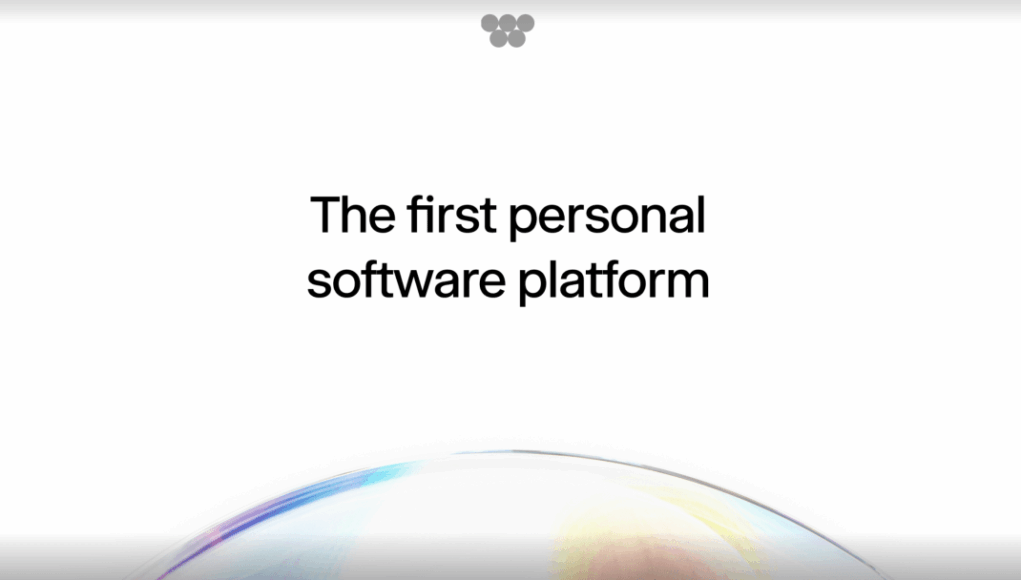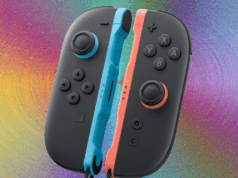Eugenia Kuyda saw the future of consumer AI before most. She founded Replika, the first major AI companion startup, in 2017 years before ChatGPT launched. Today it has 35 million users.
Now Kuyda is back with a new startup called Wabi, which she describes as YouTube for apps – a social platform where anyone can use prompts to instantly create mini apps and share them with friends. Wabi, which launched in beta last month, is a harbinger of another consumer AI shift: one where personalized software becomes the norm.
Wabi has raised $20 million in pre-seed funding from a stellar list of angels, including AngelList co-founder Naval Ravikant, Y Combinator CEO Garry Tan, Twitch co-founder Justin Kan, Replit CEO Amjad Masad, Notion co-founder Akshay Kothari, Neuralink co-founder DJ Seo, and Conviction founder Sarah Guo.
“[Kuyda] was early and right to AI companions, even though it wasn’t obvious at the time,” Anish Acharya, general partner at Andreessen Horowitz, told TechCrunch. “It’s very rare to find someone who’s got a track record for predicting what consumers will want, and we think she’s doing it again.”
Kuyda is entering a hot market. Vibe coding tools like Cursor and Lovable have attracted significant VC interest, while no-code AI platforms including Emergent, Replit, and Bloom are racing to let non-technical users build apps through prompts. Wabi’s difference: an integrated platform for creation, discovery, and hosting — no app store required.

“This was really made to help people who have nothing to do with coding or the tech world to very quickly create apps from their daily lives,” Kuyda, who last week joined us on stage at Disrupt to discuss AI companions, told TechCrunch. “All you need to put in is ‘build me an AI therapy app,’ and that’s it. It will suggest features and you can brainstorm, but it’ll build you an app. You don’t need to be great at prompting. You never see the code.”
Earlier this week Wabi released certain social features to beta users – things like the ability to like, comment and remix any existing app, as well as check out user profiles to see what others liked, used, or built.
Techcrunch event
San Francisco
|
October 13-15, 2026
X has been blowing up about Wabi since it started dishing out invites to select users. Several founders, designers, and investors from around the world have posted about Wabi’s ease of creating apps for themselves. Even Google DeepMind product lead Logan Kilpatrick gave Wabi a shout out.
“We believe that the social layer is absolutely critical because it allows for so much more creativity and discovery, and these mini apps become community starters or conversation starters,” Kuyda said.
Wabi’s Explore page currently features recent and popular apps, though Kuyda said it will become more algorithmic over time. The startup plans to launch personalized onboarding in the coming weeks, automatically generating starter apps for new users.
Wabi’s core promise isn’t too different from ChatGPT’s GPT store or the bot from Quora’s Poe: Build mini apps using prompts that could solve small problems for you. Apps like Wabi have been able to package this promise well in terms of customers not having to set up any technical infrastructure. Even if you enter a few sentences, Wabi handles things like creating an icon or setting up databases, and deciding what the UI of the app would look like.
Kuyda told TechCrunch that for apps that require anything to be AI-generated, users can open the settings and choose their foundational model (like if they want to use ChatGPT or Gemini) and even rewrite the prompts that Wabi comes up with.

Creating a basic app is simple. However, you might need to debug the app to avoid errors, which is to be expected in a development life cycle.
For example, we created an app that showed us a dog picture every day with a dog fact. After a few days of usage, we realized the app was generating the same set of dogs. When we saw another user’s daily news app, all the dates mentioned on the summary photos were October 1, 2023, while the news items were a few weeks old. Plus, one of the sources for news was, oddly, Wikipedia.
The onus is on the user to have an interest in maintaining the apps. Otherwise, you might find a lot of unmanaged mini apps in the discovery section of these vibe coding apps.
Kuyda says it’s still early days for Wabi and they’re still working out how to ensure that apps are ready to go out of the box. She noted that there are still model constraints which are improving every day. She says a big chunk of the $20 million will go towards building out Wabi’s product team.
Part of the funds are also going towards effectively subsidizing use of Wabi until the startup figures out a monetization model. Kuyda says she’s not interested in hosting ads on the platform, which leads to incentives that create dark patterns.
“I built Replika and never had any ads,” she said. “I think ads just create a pretty bad user experience. I like creating delightful user experiences.”

Acharya believes once the network effects take off, it will be easy to monetize. He sees a future where there’s a professionalization element that will happen on the platform, where many of the kids today who want to be TikTok stars might instead make software on Wabi.
“You think about the history of YouTube, it started out as people putting these shaky, low budget content experiences,” he said. “Now, 20 years later, it’s super high production value.”
Acharya added that with there’s even more opportunity with software because “video content has decaying value over time,” he said. “Software has compounding value.” If somebody builds the next hit app, it’ll continue to be relevant over the course of time.
The idea fits neatly into Acharya’s thesis on the future of “disposable software” — small, flexible apps that people can create and discard as easily as opening a new tab or having a quick chat with ChatGPT.
“I think software is the final frontier of participation,” Acharya said. “The internet has been this driving force for participation…where anyone can post their thoughts. It’s kind of strange that the internet is obviously all software, yet so few people have been able to make it.”
So what does a Web 3.0 look like when everyone can build and share software within a few minutes?
“It feels like the internet has gotten sort of clinical – we’re all using the same Instagram, the same TikTok, we all have the same home screens, apps have gotten pretty monotone,” he said. “I think the opportunity with Wabi is it’s going to restore some of that punk, strange, early 90s web ethos.”






